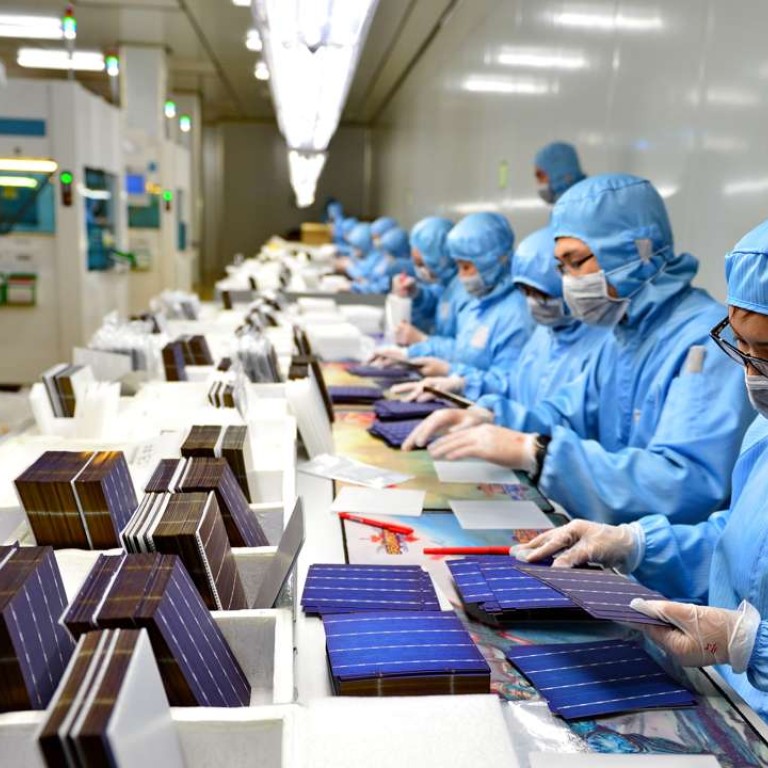
‘Made in China’ hi-tech plan risks pushing out foreign competitors, European businesses say
Beijing wants to improve industry’s technical prowess, but concerns raised that Chinese firms will be given advantage over competitors through support and greater market access
The European Union Chamber of Commerce in China has raised concerns about Beijing’s plans to develop the nation’s hi-tech prowess, arguing that Chinese firms will be given an unfair advantage through government support and their foreign competitors will be given limited or no access to mainland markets.
The chamber’s report on the Made in China 2025 initiative was released on Tuesday and it analysed in detail 10 of the industries that Beijing hopes to boost.
The initiative was launched two years ago as part of China’s plans to become a technology superpower by 2025.
The government sets out specific market share targets to be achieved by companies in key industries such as information technology and clean-energy vehicles.
China is a latecomer to manufacturing automation and has learned from major industrial powerhouses such as Germany how to move up the industrial chain.
The report said, however, that China was attempting to make up the gap through unfair state funding and subsidies for Chinese firms.
“The broad set of policy tools that are being employed to facilitate Made in China 2025’s development are highly problematic,” the report said.
“These contradictions indicate that the 2025 project is in fact a large-scale import substitution plan aimed at nationalising key industries, or at least severely curtailing the position of foreign business in them, both as suppliers of key components and finished goods.”
Foreign companies operating in China have long complained about the barriers they face, including limited market access and the ambiguous regulations they have to follow compared with their domestic competitors. State leaders pledge to open up China’s markets, but little is done, they say.

Some foreign businesses have complained that they were forced to transfer technology in exchange for market access in China, but still had limited rights to sell their goods on the mainland and their ability to bid for government procurement contracts was also restricted.
These were among the main policies which have a direct impact on diminishing the ability of European business to operate in China, the report said.
The world should benefit from more innovative Chinese products and services, but “not at the expense of inhibiting market forces through state driven schemes”, the report added.
President Xi Jinping has rolled out an ambitious reform plan to revamp China’s model for growth, steering the country away from heavy industry to more innovative, high-tech sectors of the economy.
The report said future economic development in China must be driven by innovation, not by “opening the credit tap”.
It added that China’s 6.7 per cent gross domestic product growth last year resulted from pumping in credit, but at the expense of “saddling future generations with massive amounts of debt”.
Beijing is clearly aware of the “vicious cycle” that the China’s economy is currently trapped in, the report said.
It referred to low levels of corporate research and development, especially in small and medium-sized firms, citing a senior official at the Ministry of Industry and Information Technology.
The official, who was not named in the report, was quoted as saying: “China is being pressured from both sides” in advanced and developing economies to improve manufacturing methods.
China produced 90 per cent of the world’s mobile phones, 80 per cent of computers and 60 per cent of colour TV sets in 2015, but its manufacturing is still “low value, energy intensive and highly polluting”, the report said.

